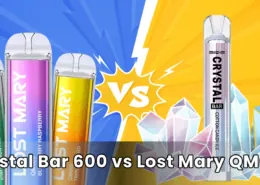Poland Announces Disposable Vape Ban
Poland aims to implement a sales ban on disposable vapes within months over surging youth addiction concerns. Deputy Health Minister Wojciech Konieczny voiced support for a total market removal by summer 2024.
Steep Rise in Teen Usage
A key motivation behind the ban stems from statistics showing massive disposable sales spikes around holidays – when usage amongst Polish youth surges. Their popularity comes from colorful designs, affordability, and variety of flavors attractive to young palates.
However, these traits also efficiently groom the next generation into lifetime nicotine addictions. Deputy Minister Konieczny referred to disposables as “ominously cool” gateways endangering public health.
Total Market Removal Advised
While supporting a blanket ban, Konieczny noted final legal language might encompass broader anti-tobacco measures. However, addressing disposables uniquely challenges lawmakers. Incremental policies tend to get skirted through loopholes.
For example, limiting e-liquid volumes per device often gets circumvented by slightly resizing hardware. According to Konieczny, only sweeping unambiguous bans prove effectively enforceable without exploitation. The less legal wiggle room, the fewer opportunities remain to be exploited.
Racing Against High Season
In supporting urgent action, Konieczny optimistically estimates implementation within months – before the next high season spikes underage usage rates higher. With multiple agencies involved, many details around exact scope and timing remain pending.
But Poland seemingly intends to follow the accelerating global consensus on aggressively regulating disposables. As one of the first E.U. members bidding to abolish the category, progress will be monitored closely across Europe.
Health Impacts Still Unclear
Unlike the general regional shifts toward tobacco harm reduction policies, Poland historically favors more restrictive anti-smoking stances. So hastened pursuit of bans aligns with prior positions on vaping regulations.
However, concrete evidence on potential harms (or benefits) from teen disposable usage remains quite limited presently. While addiction vulnerabilities at those ages are established, disposable-specific impacts require further investigation. Still, Poland acts preemptively until more definitive findings emerge.
With arguments around vaping’s risk/benefit balancing still evolving, Poland’s aim to essentially abolish the disposables category signals their view of addiction risks outweighing any potential upsides for youth. As language develops, vaping proponents will watch closely how blanket bans impact teen usage rates and black market risks. The legislation may influence policy directions across Europe.
- Austria Plans to Ban Disposable E-Cigarettes - August 5, 2025
- Vaping vs. THC Drinks: Which Cannabis Option Is Right for You? - August 4, 2025
- Colombia’s New Vape Law: A Reality Check on Enforcement - August 4, 2025









